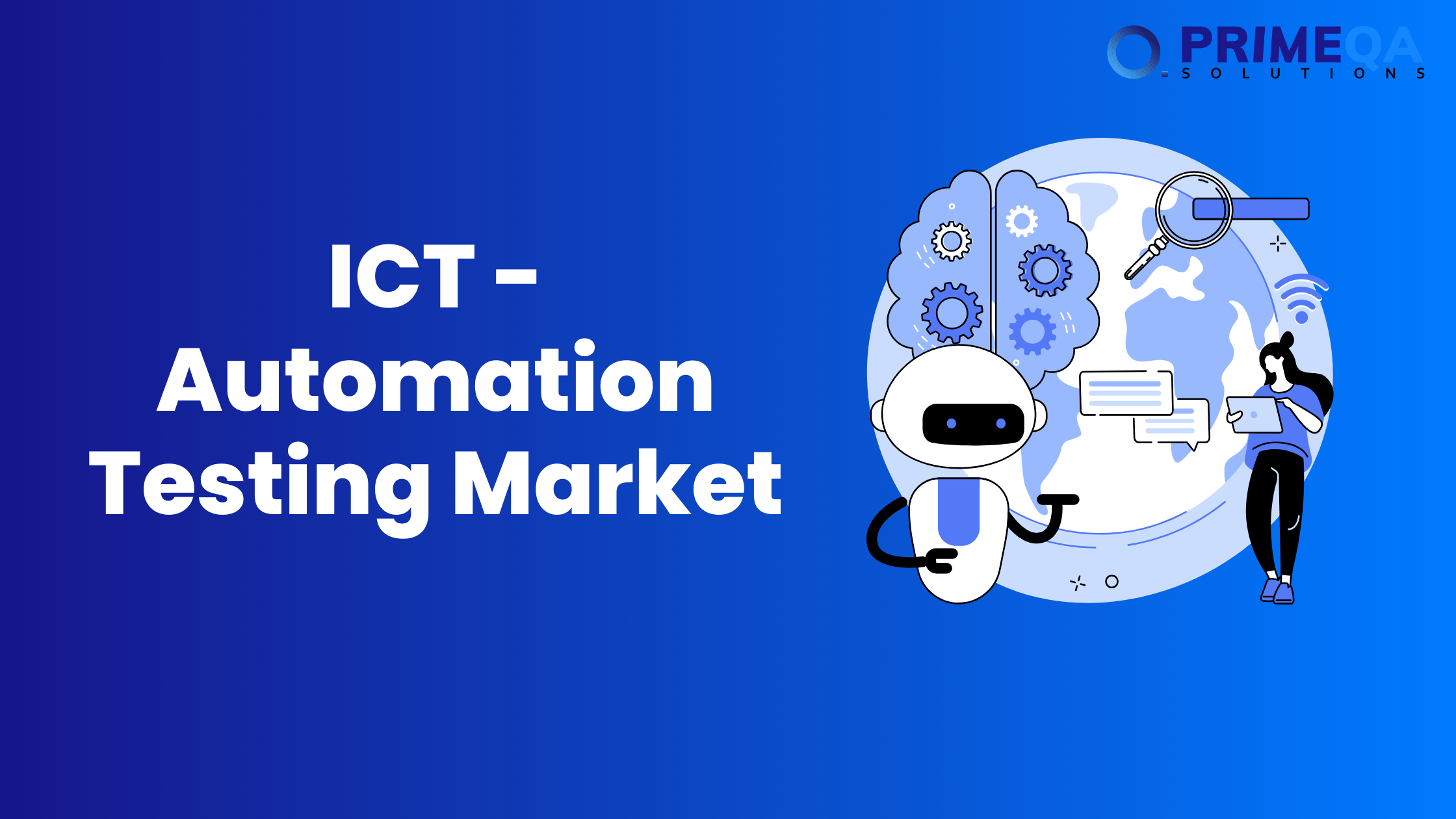ICT in Automation Testing is the middle knob of innovation within the digital world. In the modern world where technology develops at a rapid pace, it is necessary to constantly evolve to improve the quality of services. One among these areas is automation testing, which experienced tremendous growth and transformation. The demand for effective solutions for automation testing is on the rise as companies try to provide high-quality software products.
As a subset of software testing, automation testing is done with the help of specialized tools and frameworks that help automate the test case execution. It helps to increase productivity and shorten time-to-market while ensuring product reliability. This market segment has drastically changed over time, mainly due to the increasing complexity of software applications which highlights the importance of ICT in Automation testing.
Drivers of Market Growth for ICT in Automation Testing
Growing Software Application Complexity: Web, mobile, and cloud-based technologies have made software applications more complex. Manual testing procedures are so cumbersome that companies are opting for automated testing solutions so as to ensure speed and accuracy of testing..
The move to Agile and DevOps: TThe agile and DevOps methodologies made software development and deployment practices centered on rapid iterations and continuous integration. Automation testing allows for several iterations of testing as well as easy integration with the development pipeline, which is very much needed for the Agile and DevOps workflow.
The ICT Advancements: A few examples of how automation testing may profit from the ICT Advancements are cloud computing, machine learning, and artificial intelligence. These tools complement the more intricate features of the testing instruments with their capacity for intelligent test case development. It enables predictive analytics, and infrastructure scalability to enable distributed testing.
Growing Need for Continuous Testing: It is very necessary to provide quality software within the shortest possible time in the existing competitive market scenario. This gives the ability to do continuous testing through a, allowing faster time-to-market and the early detection of defects.
Cost and Time Saving: Compared to manual testing, automated testing offers significant time and cost savings. Organizations can benefit from automating repetitious test cases and regression testing to achieve faster release cycles and improved resource use.
The State of the Market and Major Players
The automation testing market boasts of a rich ecosystem of manufacturers offering a vast range of testing tools and solutions. In this regard, some of the key companies in this sector include:
IBM Corporation provides extensive automation testing solutions for enterprise-scale applications. IBM is known for its Rational Functional Tester and Rational Performance Tester.
Micro Focus International Plc is a company that has products in its product line comprising testing solutions. LoadRunners and UFT are designed to fulfill the needs of businesses across various sectors.
Tricentis: Tricentis offers next-generation Continuous Testing platform, featuring elements such as API testing, and automation. Tricentis provides service virtualization in its flagship product, Tosca.
SmartBear Software: The company offers many automation testing tools, which include TestComplete and ReadyAPI.
Selenium: Selenium is an open-source framework for the automated testing of web applications. It provides flexibility, extensibility, and strong community support.
Future Outlook
Several important factors will change the future of automation testing market. More and more companies are adopting digital transformation initiatives and agile methodologies. Hence companies are more dependent on automation testing.
Connections of CI/CD Pipelines: The easy integration of automation testing technologies with the CI/CD pipelines will soon become a regular part of the DevOps processes. We can perform testing activities at a faster speed because of this link, thereby enabling faster and much more effective testing cycles.
AI-driven Testing: Machine learning and artificial intelligence technology, create intelligent test . With the help of test cases, we can perform predictive analytics. It improves the efficiency in testing by reducing the labor-intensive portion of it.
Shift-left Testing: Continuous improvement will be observed in the testing activities to be done earlier in the software development lifecycle. Shift-left testing is the concept that accelerates software quality and time to market by increasing feedback loops. Thus it enables the early detection of defects and fostering cooperation between the development and test teams.
Beyond UI testing: Automation testing will not only touch upon traditional UI testing but will expand to cover various testing domains. This expansion also includes infrastructure automation, microservices testing, and API testing. This covers all the changing complexity in modern applications in a full automation approach to ensure the risks associated with software rollouts are minimized.
Conclusion
The market for automation testing is growing very strongly since the development of technology never stops. As there is always need for business entities to produce high-quality software products while delivering in a shorter period. Therefore, automation testing plays a critical role for business entities in managing the challenges brought by digital transformation. The rapid evolution of ICT in automation testing enables them to gain the flexibility to survive in this digitized world.







